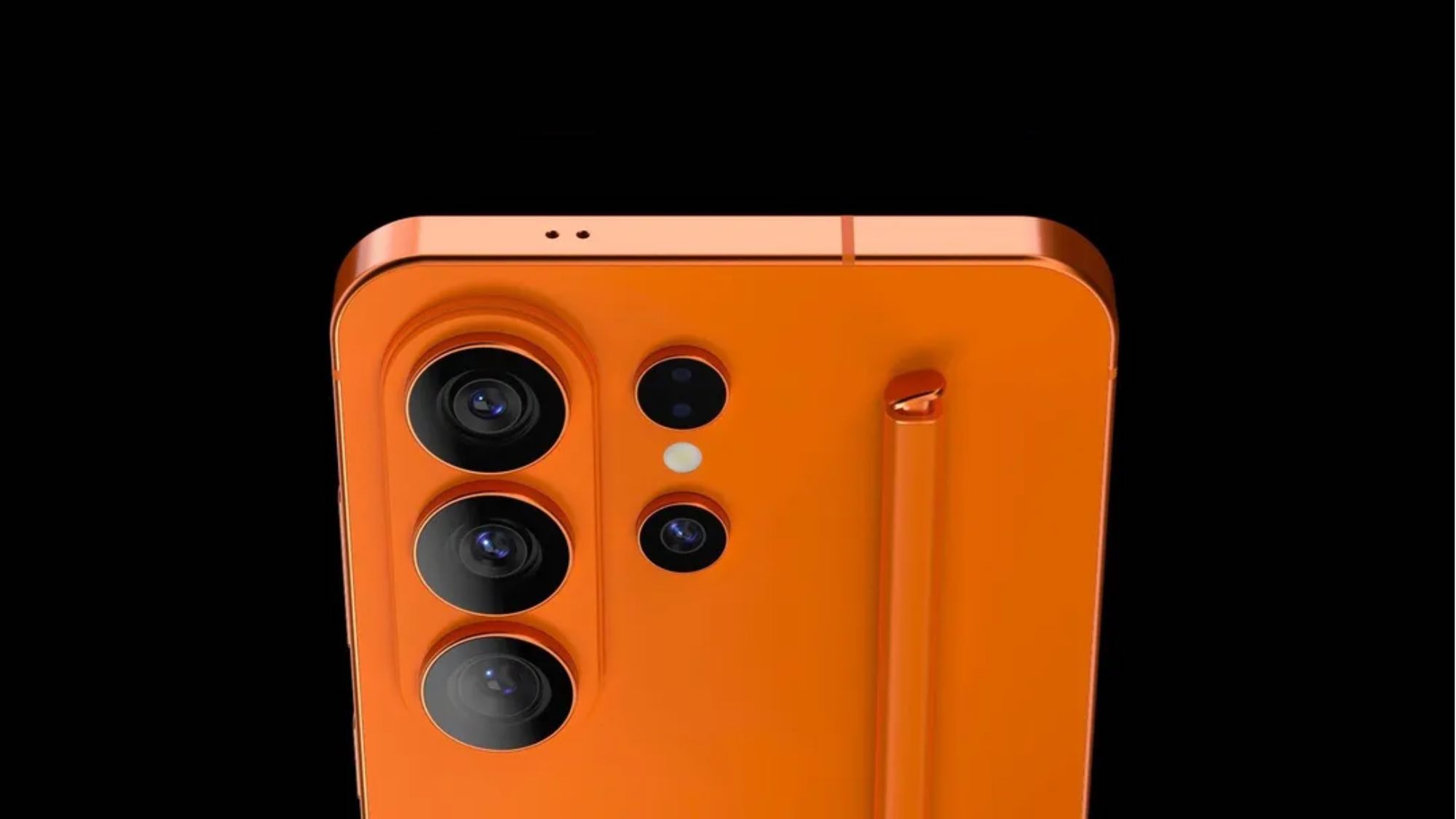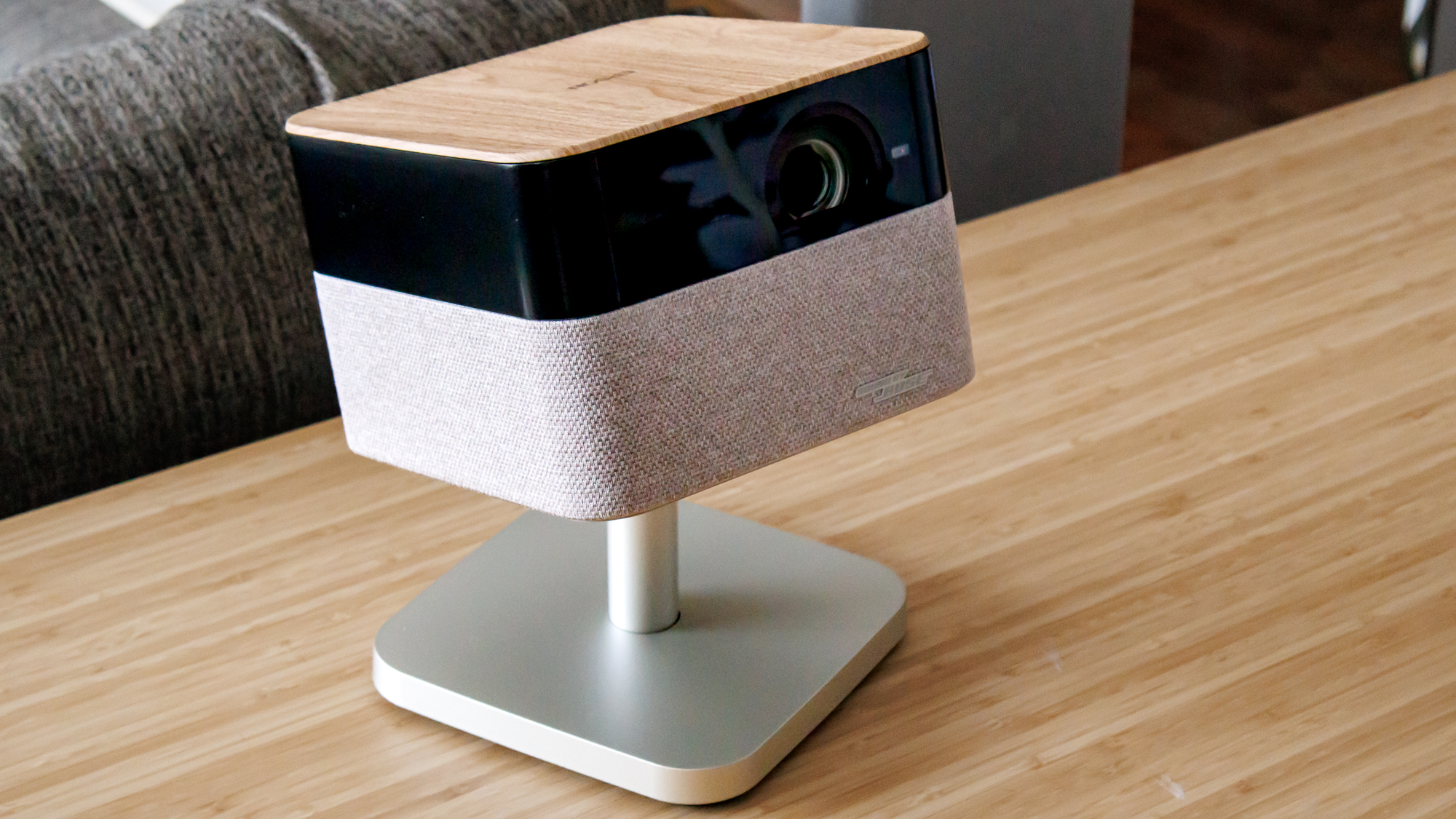
I've tested some of the best projectors over the years, and it's no secret that I think Ultra Short Throw models are as good, if not better than, some of the best TVs. However, I often steer clear of portable projectors due to their limited features and performance.
The Epson LifeStudio Plus is the first one to make me re-think that opinion.
Although it's a hefty investment at $999, this portable projector offers a slew of features in conjunction with excellent 4K picture performance, even in outdoor settings. I spent an entire week with Epson's newest projector to see what it can do and how well it stacks against the competition. Here's how it all went.
Luxury looks and a much better name
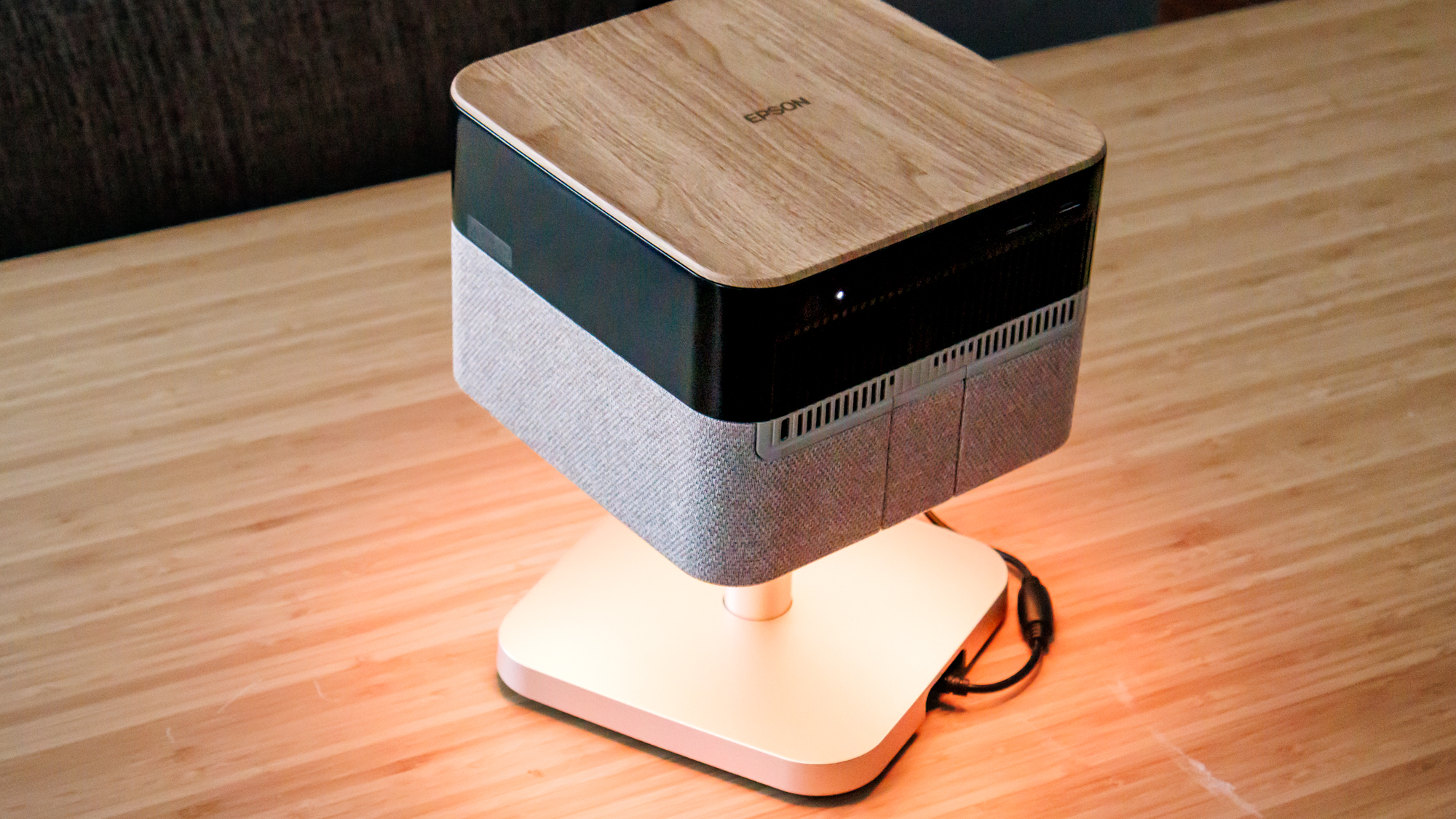
Epson has finally updated the naming of its newest projectors, making it so much easier to know what you're getting.
For instance, instead of a string of code like the Epson EpiqVision Ultra LS800 projector, which doesn't really tell you what it is, the Epson Flex Plus is far more meaningful. The new projector is literally flexible in a wide range of ways, from being ultra-portable to featuring one of the most robust gimbals I've ever seen.
The projector can be swiveled in various directions. You can even shoot the image onto the ceiling if you want to lean back and watch content as if you're staring into the clouds. I especially love how the power cord plugs into the bottom of the stand, so you can still move the projector around freely.
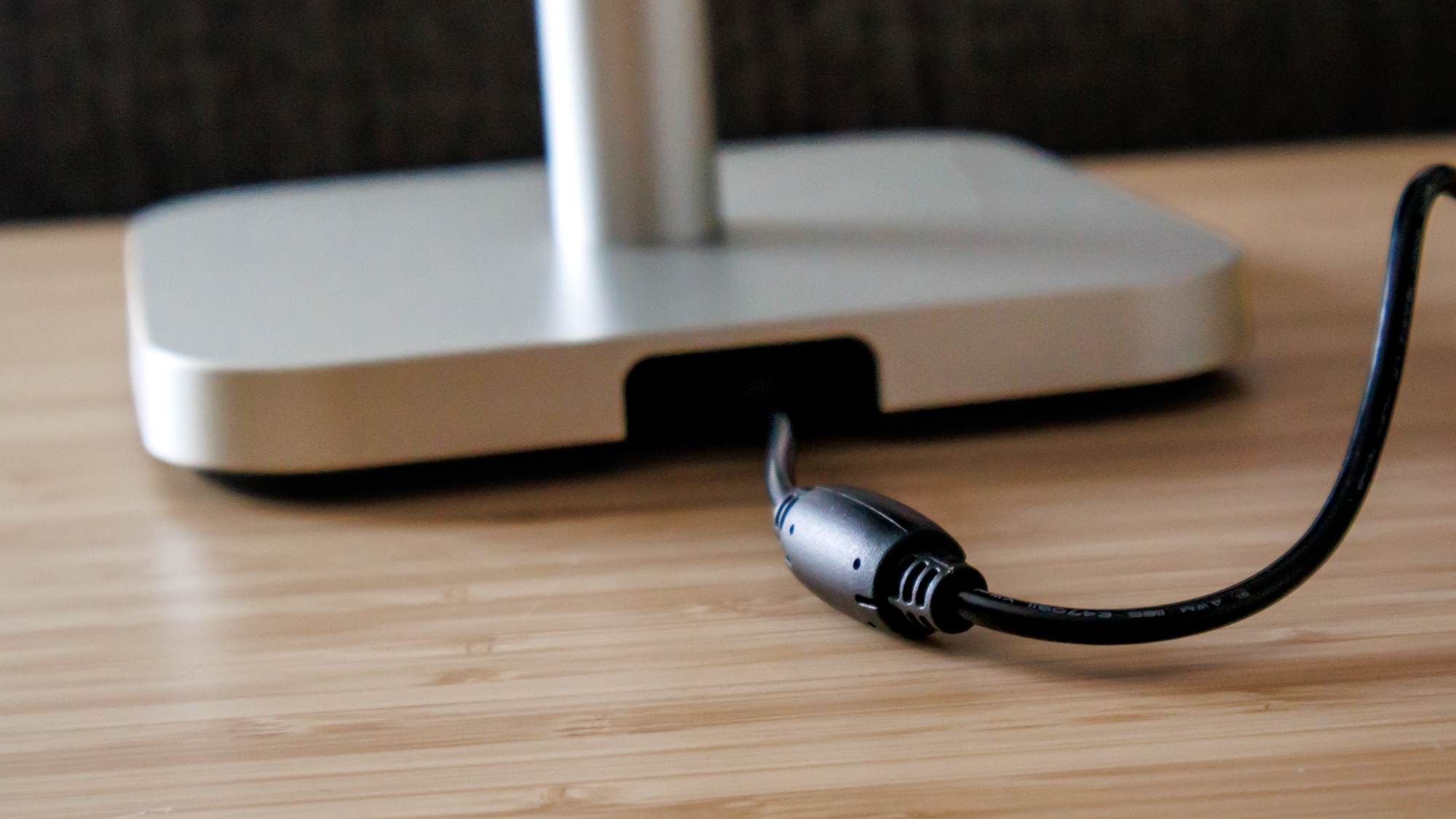
Another handy design feature is the Epson Flex Plus' handy ambient light. You can change the color pattern as simply as tapping the top of the projector. Given that you'll want to watch your content in darker environments (as most projectors, the Flex Plus included, don't handle daytime viewing very well) it's really nice to have so you aren't fumbling around in the dark.
Get instant access to breaking news, the hottest reviews, great deals and helpful tips.
Epson is also releasing a few other add-ons you can buy, such as a $149 wireless microphone and a $199 adjustable floor stand. The adjustable stand comes with a magnet inside, which can be used to keep the remote attached at arm's reach.
I've got to say, as portable projectors go, the Flex Plus looks sleek and stylish. I'm a big fan of the upper wood finish, and the accompanying stand gives it tons of versatility in how you set it up.
Connectivity & smart features
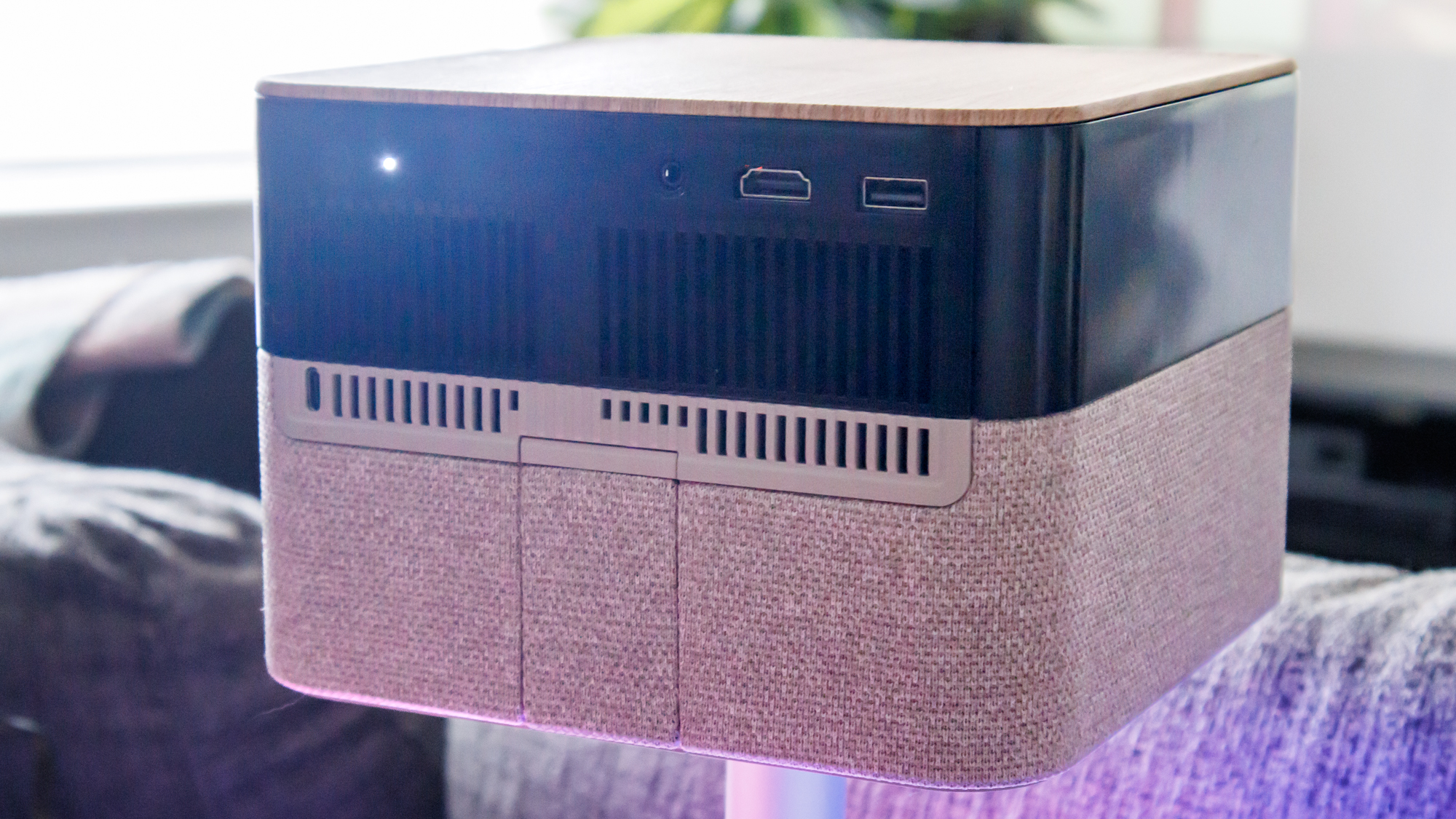
The Epson Flex Plus has a handy auto-focus and alignment feature that streamlines this entire process.
Setup was a total breeze. I don't think I've ever set up a projector this fast before, especially when it came to focus and alignment. The Epson Flex Plus has a handy auto-focus and alignment feature that streamlines this entire process.
Normally, this is one of the most annoying aspects of projectors. You can spend up to an hour or even more simply setting up the projector to look its finest, but the Flex Plus took away this entire headache and the best part is that it works instantly.
Whenever I moved the projector head, pushing the projection off-alignment and out of focus, the auto-focus immediately fixed the image. It seriously blew me away not only how accurate it was, but how quickly it worked.
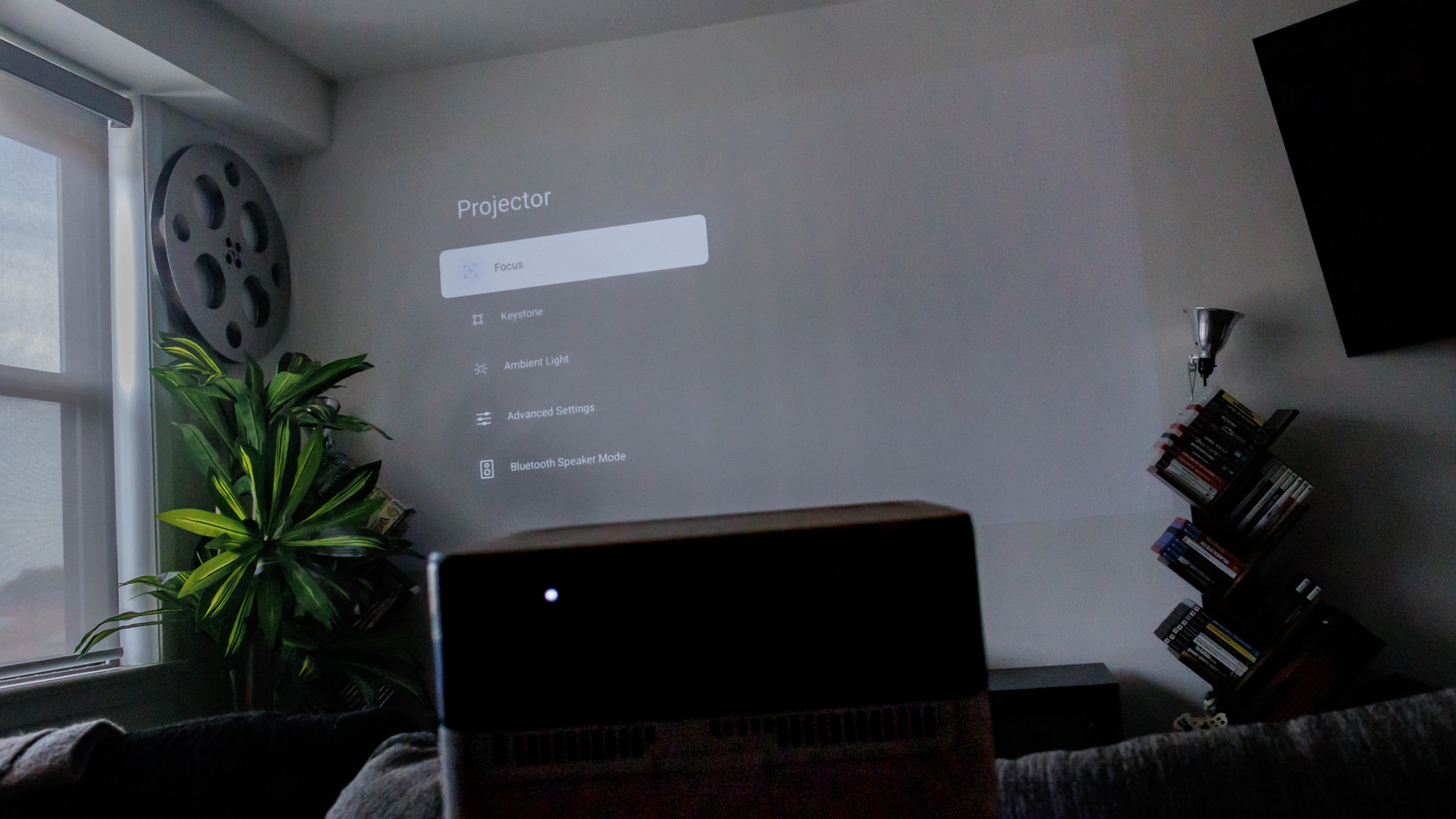
The Flex Plus also runs on Google TV, which is one of my favorite interfaces. This was also super swift in the setup process, hindered only by a few minor issues. You should download the Google TV app first to make the process quicker and easier.
A letdown for some might be the fact that it isn't equipped with Dolby Atmos, Dolby Vision, or HDR10+. For a device at this price, support for either Dolby Atmos or HDR10+ would be a nice touch, but their absence is to be expected on a portable projector. The good news is that the Flex Plus still supports HDR10, making it an ideal on-the-go pairing with the Nintendo Switch 2.
Speaking of its portability, the Flex Plus has USB-C power. This makes it much easier to travel with, but it requires a 100W or 140W portable charger so you won't be able to use your phone's charging brick to power it.
The finer details
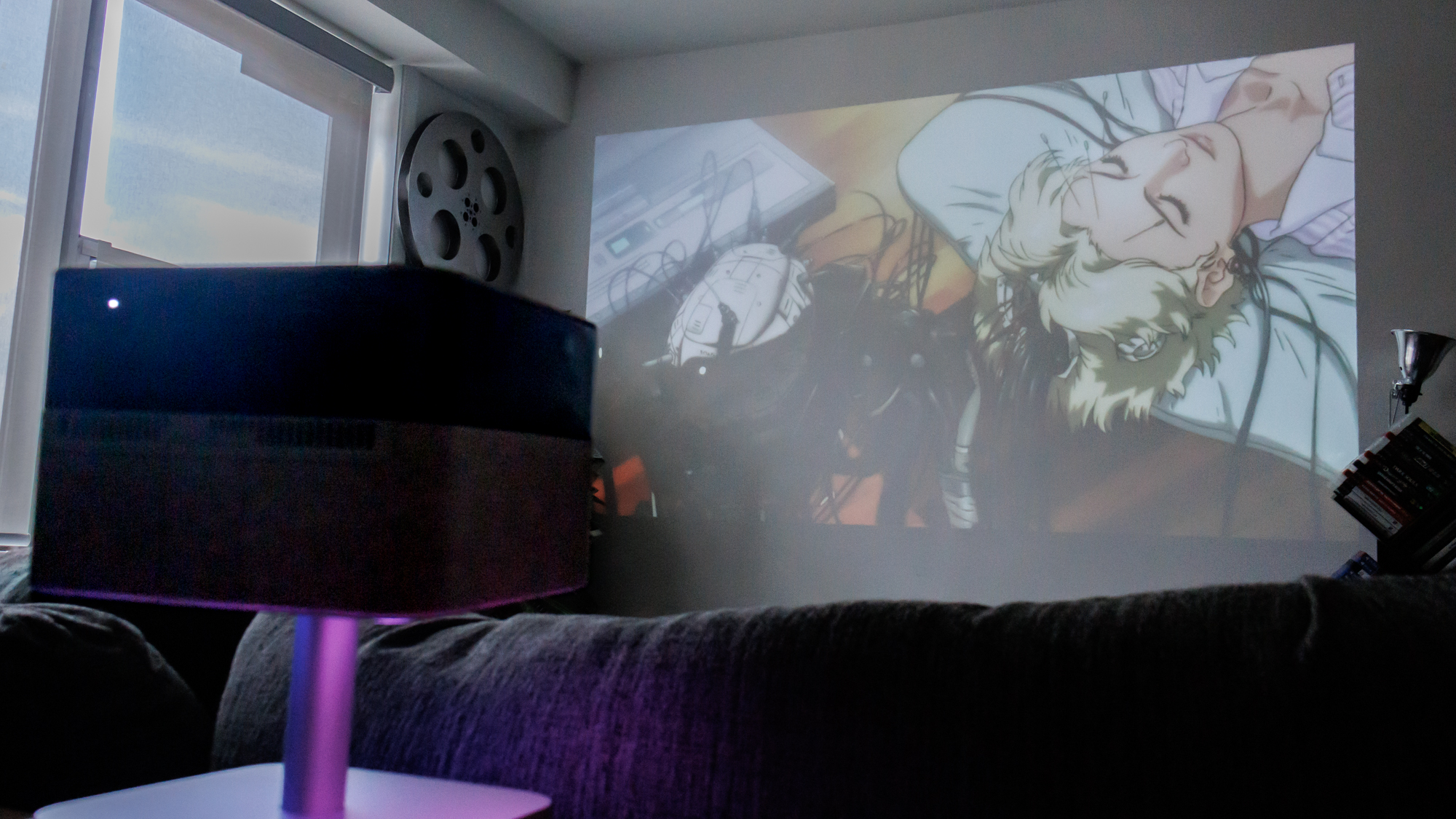
In terms of image quality, the Flex Plus falls prey to the same issues plaguing other similarly priced projectors: poor daytime viewing. There's no getting around this unless you have an ALR screen of some kind, which isn't exactly feasible with a portable projector like this.
The odds of someone using a projector in the middle of the day are slim, given the setbacks, but in a pinch you could get away with it so long as you're watching more vibrant content.
The Epson Flex Plus pushes out 1,000 lumens in both white brightness and color brightness. I'd personally like to see this number a little higher, especially on a device that costs $999, but it's adequate for now, given its style upgrades and enhanced features.
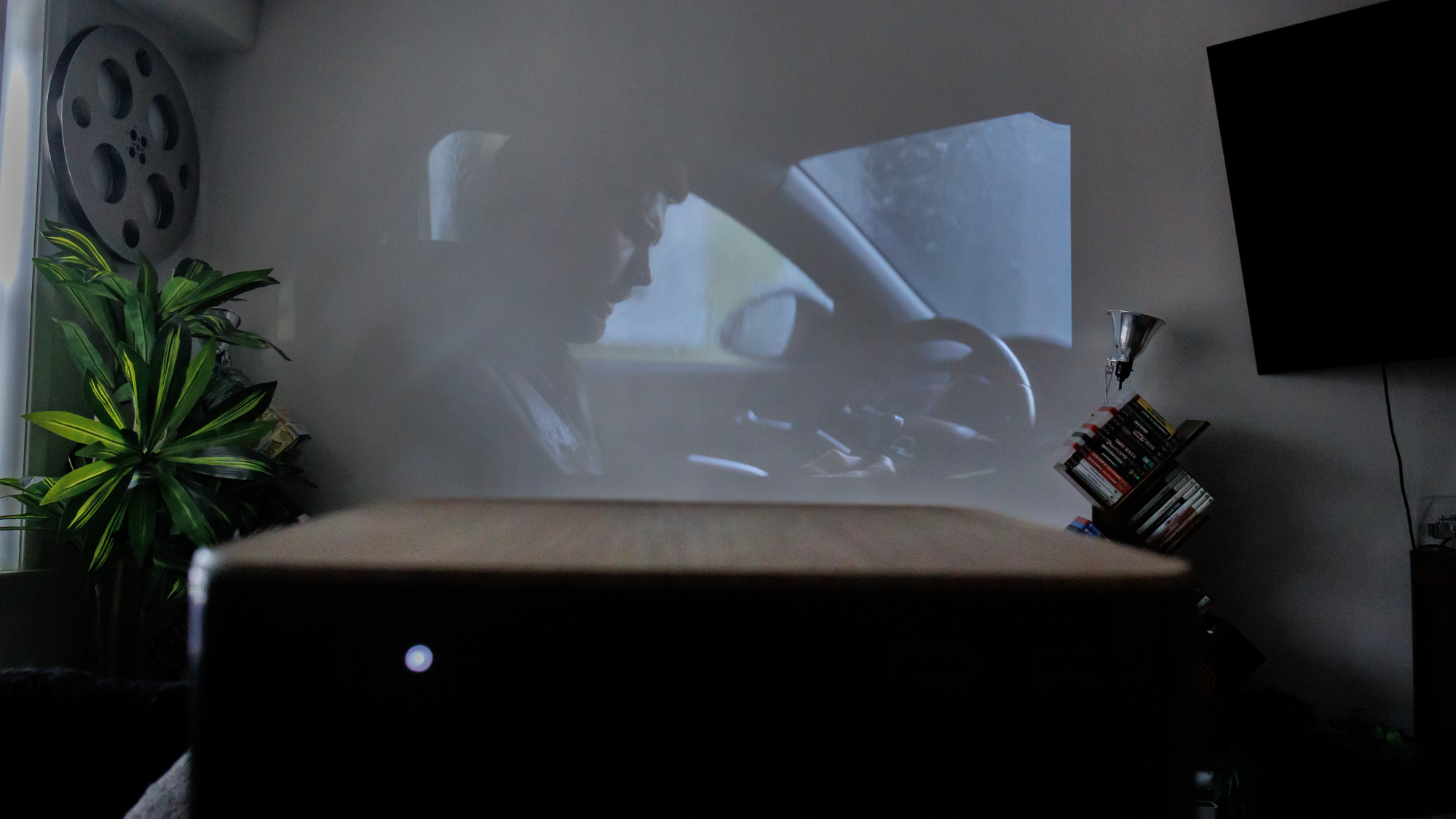
Thankfully, you'll get way better performance in darker settings, particularly at night or in a room with blackout shades. In nighttime settings, the Flex Plus blew me away by offering stellar color in the Cinema picture setting mode.
The sound is also surprising for a projector this size. Epson advertises a Bose-designed speaker, which may or may not carry a lot of water, but it's definitely punchy and delivers crisp and clear audio at higher levels.
That's good because, if you're like me, you'll have the speaker's volume set to 80 to deliver dialogue that isn't lost in the background noise. If you're still having problems with dialogue, changing the audio mode to "Dialogue" can really help.
Should you buy?
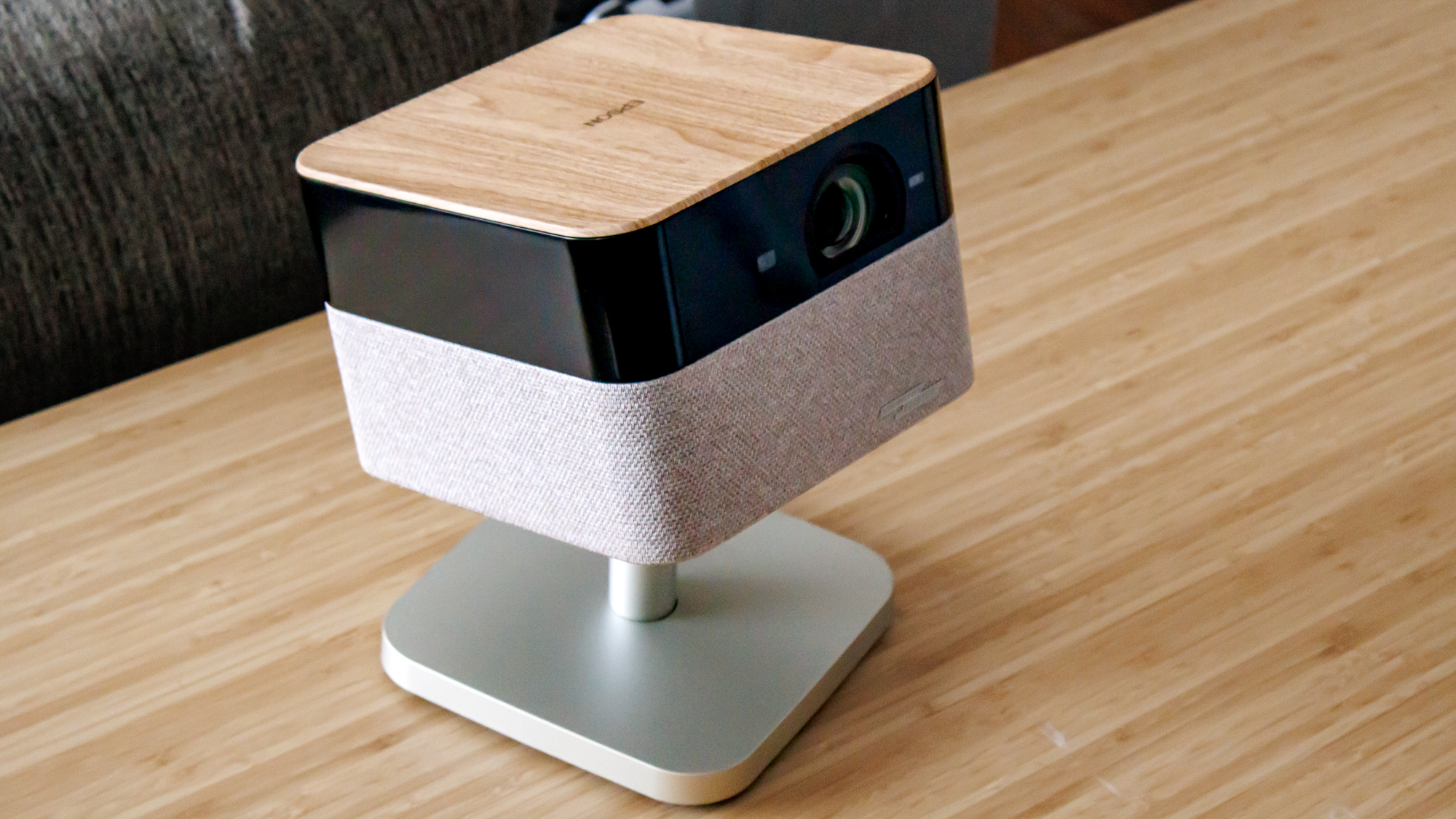
Portable projectors don't often perform this well, but the Flex Plus surprised me. It's equipped with incredible picture quality and a robust set of features to suit your needs, whether on the go or at home.
However, there are some cheaper options to consider. The best one that comes to mind is the XGIMI MoGo 4, which is half the price of the Flex Plus at $499. It's not quite as feature-rich, nor does it offer the same performance, offering just 550 ISO lumens, but it's not bad at all considering the price.
Short of buying something like the Anker Nebula X1, Epson's Flex Plus is a worthwhile investment. It's easily one of my favorite new projectors, which is saying a lot given I'm not usually a fan of portable models like this one.
More from Tom's Guide

Ryan Epps is a Staff Writer under the TV/AV section at Tom's Guide focusing on TVs and projectors. When not researching PHOLEDs and writing about the next major innovation in the projector space, he's consuming random anime from the 90's, playing Dark Souls 3 again, or reading yet another Haruki Murakami novel.
You must confirm your public display name before commenting
Please logout and then login again, you will then be prompted to enter your display name.
 Club Benefits
Club Benefits





